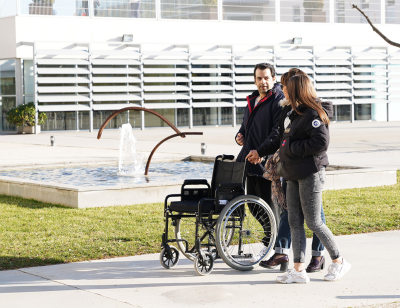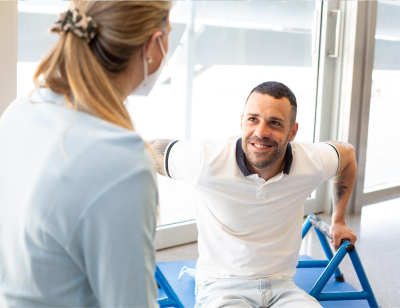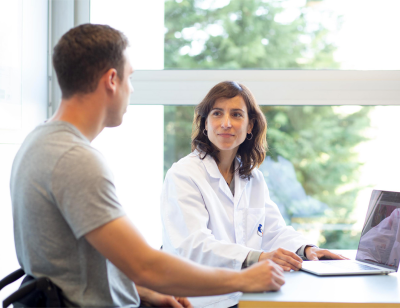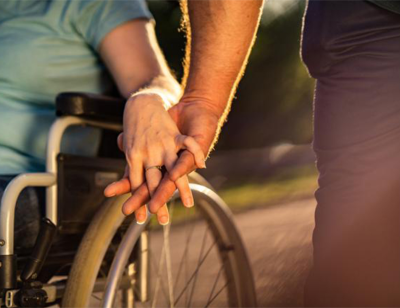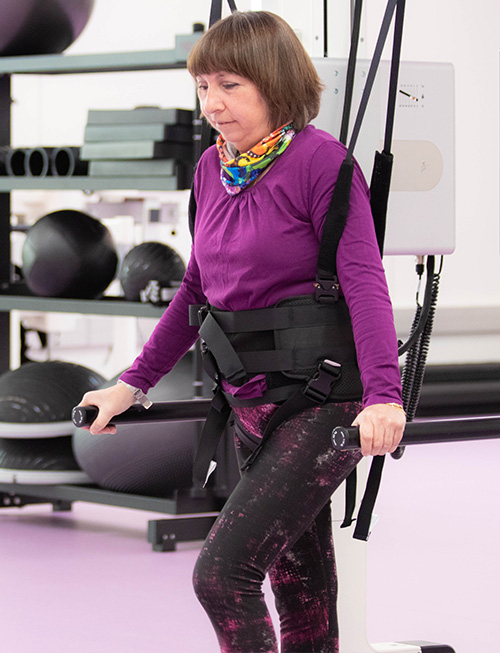Meet the Neurorehabilitation Team
Multiple sclerosis
Some of the many symptoms that can be suffered by people with multiple sclerosis include:
- Loss of strength.
- Fatigue.
- Lack of coordination.
- Visual disturbances.
- Sensory alterations.
- Sphincter dysfunction.
- Sexual disorders.
- Cognitive and emotional disorders.
Diagnosis and treatment of multiple sclerosis
Diagnosing multiple sclerosis requires a clinical assessment by a neurologist familiar with the disease and complementary tests, mainly magnetic resonance imaging.
In recent years great advances have been made in the pharmacological treatment of multiple sclerosis, reducing the number of flare-ups, and therefore modifying the course of the disease. However, responses to this treatment vary and most patients will require a multidisciplinary approach during the process. Neurorehabilitation is essential within this approach, including motor, emotional and cognitive aspects, with the aim of improving functionality and patient participation.
Neurorehabilitation for multiple sclerosis at the Institut Guttmann
At the Institut Guttmann we carry out a highly specialised neurorehabilitation process aimed at restoring, minimising and/or compensating functional alterations caused by multiple sclerosis. We provide patients with comprehensive, continuous, personalised care based on the intervention of an expert multidisciplinary team.
The lives of people affected by multiple sclerosis can be considerably improved by scientific rigor and human warmth, taking advantage of the possibilities offered by the most modern technologies and applying specific clinical procedures that can provide significant qualitative improvements.
Outcomes of the rehabilitation process
Guttmann Barcelona
The Guttmann Barcelona, Brain Health and Neurorehabilitation Institute offers personalised training and function improvement programmes, as well as specialised intensive programmes.
Active Life
A programme for empowerment, community training and starting independent living.
Active Life is an innovative programme that goes one step beyond the traditional vision of hospital rehabilitation. The aim is to ensure that people regain the maximum amount of functional autonomy, as well as their ability to make decisions and manage their own lives according to their own lifestyle in an active and participatory way.
The origin of this initiative stems from the need to transfer learning and skills acquired during the rehabilitation process to the community environment. This facilitates adaptation and helps normalise the person’s new situation within the community.
This programme is adapted to the specific needs of each person and can be carried out whenever they need to acquire skills to learn to live independently.
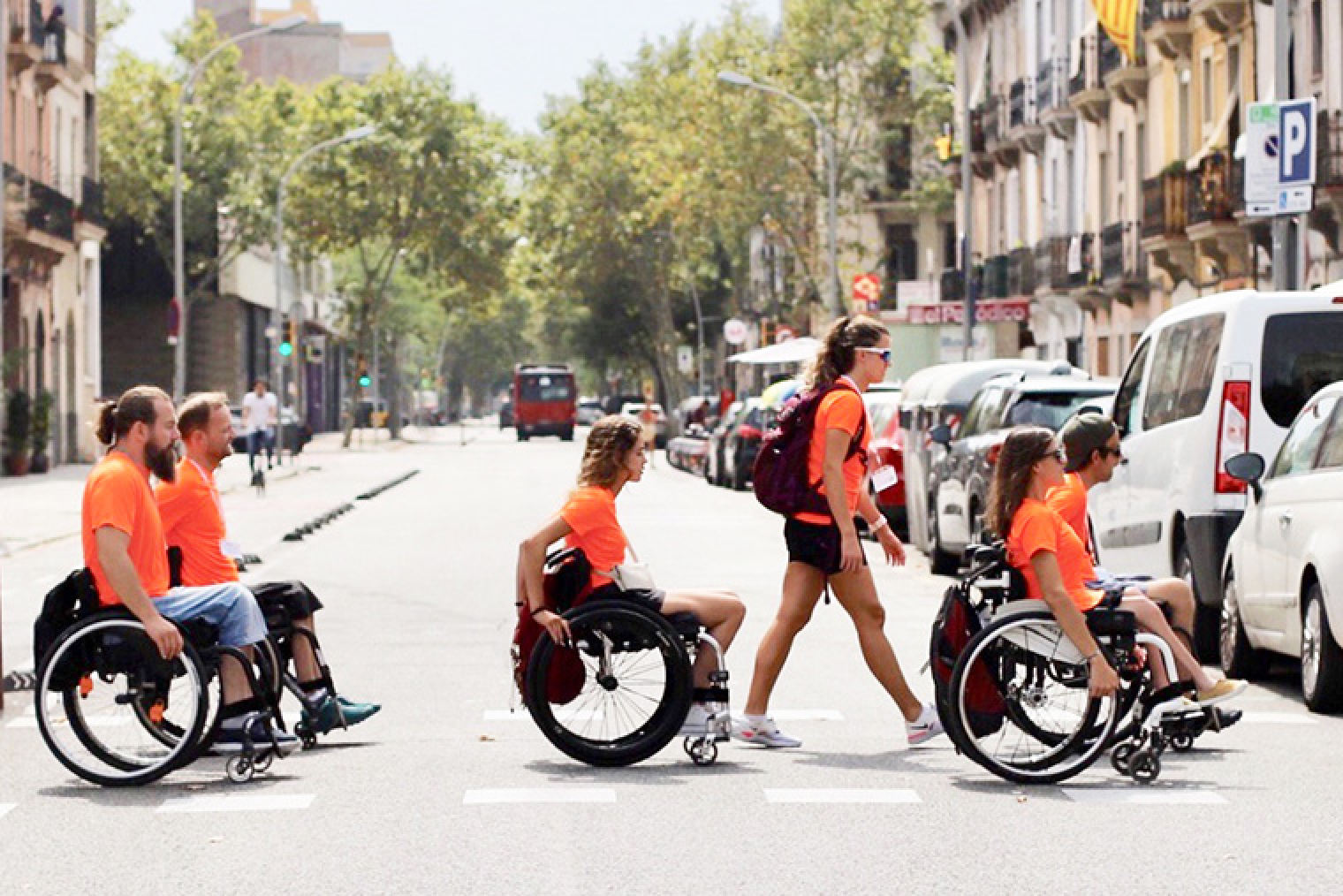
A space that is adapted and designed for you
GBL apartments
Guttmann Barcelona Life is a social facility consisting of a group of fully adapted and automated apartments that offer a wide range of complementary services tailored to each user.
The apartments share a building with the Guttmann Barcelona Brain Health and Neurorehabilitation Institute, so it is possible to combine a stay with a specialised neurorehabilitation treatment.
References on multiple sclerosis
Terré-Boliart R y Orient-López F. Tratamiento rehabilitador en la esclerosis múltiple. Rev Neurol 2007, 44(7): 426-431
Moti RW & Pilutti LA. The benefits of exercise training in multiple sclerosis. Nat Rev Neurol 8, 487-497 (2012)
Latimer-Cheung AE, Pilutti LA, Hicks AL et al. Effects of Exercise Training on Fitness, Mobility, Fatigue, and Health-Related Quality of Life Among Adults With Multiple Sclerosis: A Systematic Review to Inform Guideline Development. Arch Phys Med Rehabil. 2013 Sep;94(9):1800-1828.
Flachenecker P. Clinical implications of neuroplasticity - the role of rehabilitation in multiple sclerosis. Front Neurol. 2015 Mar 3;6:36
Prosperini L, Piattella MC, Giannì C, Pantano P. Functional and Structural Brain Plasticity Enhanced by Motor and Cognitive Rehabilitation in Multiple Sclerosis. Neural Plast. 2015;2015:481574.

